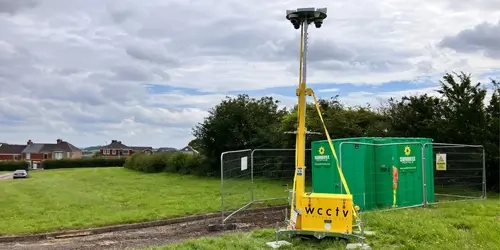Previous funding for Safer Streets and Fly-Tipping Intervention projects has shown an increased push throughout the years to improve public safety and environmental concerns arising across most areas in the UK.
However, this funding is competitive with many Local Authorities and Public Safety sectors all throwing their hat into the ring and only a certain number able to receive such financial support.
A poor tender could lead to you losing out on this opportunity at the first hurdle, therefore, refining your tender writing process is central to your Local Authority’s funding success.
Having worked with various Local Authorities and Public Sector departments following funding, we’ve gained insight into the tendering process, what this entails and the key requirements to keep in mind.
To support you in your tendering process, we’ve created this comprehensive guide for Local Authorities and Public Sector, covering where to find them and how to create a successful bid.
Where Can You Find Grants and Funding Opportunities?
Generally grants for Local Authorities and Public Sector will be made available by the Government, however, there may be some funding made available elsewhere.
In most cases, you can find relevant funding via the gov.uk website which is where all Government based funding can be found.
These grants will be posted as the funding becomes available, so you will need to check this page on a regular basis to monitor any new schemes which may not have been visible prior.
Other grant funding may become available, however, this may not be readily available on the Government website and in these instances you will simply need to keep your ear to the ground for any announcements.
If you can designate an employee or group of individuals who search and find grants, this will help alleviate that hassle and ensure you remain on top of new grants before other Local Authorities or Public Safety departments.
How to Write a Public Sector or Local Authority Tender
The world of Public Sector tendering is a competitive environment and your bid is the only opportunity you have to entice those assessing and dividing the funding that your area deserves it.
Therefore, it’s crucial you write a clear, concise tender to provide your area with the best chance of receiving funding.
Although each grant or funding scheme will have different specifications and criteria that you will be required to meet, there are key steps you should take to ensure you write a successful tender:
Find and Select Grant Funding
Using the Government website and other available tools, you will need to find funding that is both available to you and relevant to your needs.
All grants and funding schemes on gov.uk will provide the following information:
- Brief grant or funding scheme summary
- Location
- Funding organisation
- Application eligibility
- Available funding
- Total grant scheme funding
- Opening date
- Closing date
You should take note of this information as this helps to establish whether you would be able to apply for that particular grant. If you do not meet certain criteria, you will simply be wasting time applying for that funding.
Once you have found a grant or multiple grants you wish to apply for, you can then begin the process of creating the tender for them.
Research and Strategically Plan the Selected Bids
The tender creation process for a public sector grant isn’t just about the writing, but in the planning too. In fact, the planning is just as important as the writing part of a tender.
Without doing any research or strategic planning, you are left writing blindly to an audience you have no knowledge of on a grant you may only have the basic information of.
Doing this will only likely lead to your grant becoming lost amongst other well-researched, planned tenders.
Therefore, before beginning the writing process of any bid you need to strategically plan and research any selected grants you’re looking to place a tender with.
The first step you’ll need to take is to evaluate whether you can realistically win that bid as taking time to prepare and write one utilises valuable business time.
There are key steps to evaluating this:
- Evaluate the benefits to your area or public sector and if the grant could meet your requirements.
- Assess the available resources and timeline.
- Review your competitor advantage and any standout offerings other Local Authorities or Public Sector departments do not have themselves.
- Read through the full tender documents and make any relevant notes.
- Check that any criteria set by the grant are met by your Local Authority or Public Sector department.
If following this you feel your bid would likely be successful and are confident in proceeding with the tender, the next steps are to research the funding organisation and previous funding they have provided elsewhere.
Getting a gauge of who the funding organisations are, what their focuses are, who they generally work with, and projects they have funded before will help you establish their approach and support you in shaping your bid.
Although your bid needs to display who you are, you also need to ensure it is designed to your audience so completing this research will help you cater your tender to them and boost your chances of success.
Establish Your Approach to the Tender and Seek External Advice if Needed
Once you have completed your research and assessed the realistic prospect of it, you should now establish the way you wish to approach the tender.
It is recommended that you break down the tender into sections and approach each of them individually to ensure you cover all key points required for the tender and meet all the criteria set.
If you are new to writing tenders then you may benefit from external support like a professional who has previously written or worked on public sector tenders.
You can gain this support through consultancy or if you have an employee within the company that has experience, it would be best to bring them into the tender writing process.
Write Your Bid Tender
Following all the preparation and planning, you should be ready to begin writing your tender.
You should always keep the following information in mind when writing your tender:
- The resources you will require, including any security systems required.
- How the resources will support your area with tackling the specified issues.
- Why the funding is required.
- Who you are and the support you provide.
These generally need to be included in all tenders, however, there may be other requirements that you need to include also, so do not forget to keep them in mind throughout also.
When writing, you need to be clear and concise as those reading will have multiple applications to look through and will be required to gain information quickly.
Use plain language, avoid jargon and maintain a simple format.
You should use headings, subheadings, paragraphs, bullet points and lists to section out your text to avoid your tender becoming too bulky.
Essentially, your tender needs to display both who you are, but also communicate your funding needs concisely so that you have the best opportunity of gaining a grant.
Proofread Your Response Before Submitting
After writing, you should always check your tender and then check it again.
We have all been engrossed in a project where due to this, we miss simple errors that otherwise would have been spotted if external to the project.
This is why it is beneficial to proofread your tender following completion, specifically getting an external employee to do this as they will likely have a clearer perspective on any errors or improvements that can be implemented.
Make sure you provide yourself with an adequate amount of time to review and proofread your tender. Leaving it to the last minute will only rush the process and run the risk of there still being errors at the end of the review.
Read and Action Feedback From Any Unsuccessful Bids
Some tenders will not always be successful, but these are good learning experiences in the public sector tendering process for you.
If you receive any feedback, keep it on file for your next proposal and make sure to action this in future where relevant because this could help to bring success in your other attempts.
Try to stay optimistic with your tenders as having an unsuccessful proposal does not mean you will not be successful on another occasion.

WCCTV: The Market-Leading Security Supplier For Public Sector
Place your public safety in our trusted hands!
With over 20 years of experience in supporting public sector services like the Police, Local Authorities and Housing Associations, we understand the best security approaches to the various challenges departments are faced with.
Our range of products, from Redeployable CCTV and Covert Cameras to CCTV Towers are all backed by our fully-managed security service which allows us to customise our response to the security threats you are presented with.
In particular, over recent years, we have supported multiple Councils and Local Authorities in preventing fly-tipping through the use of mobile CCTV solutions.
Their flexible designs allow them to be moved to new areas or crime hotspots as and when required with minimal operational intervention.
And with future funding being discussed for this, it’s time to consider your security options and how your area could tackle such issues.
Looking to discover more about our products to support your public sector tender?




